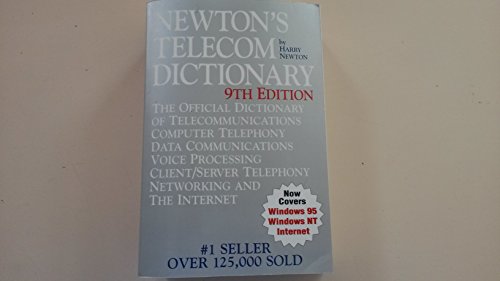Newton and his editors write this dictionary in non-technical business language. Newton believes that anyone in business ought to be able to understand complex technical terms, and figure their significance. Newton's objective is to explain what the technology means, what it does, what its benefits are, and what its pitfalls are. Newton's Telecom Dictionary defines 22,950 terms, making it the biggest telecom dictionary in the world and one of the largest technical/business dictionaries.
The technology of long-distance voice and data communication incorporates millions of details. The business of selling that technology involves plenty more. Anyone hoping to navigate this jungle of facts and terminology had better keep a copy of
Newton's Telecom Dictionary close at hand. It's the single best resource for quick explanations of diverse telecommunications technologies.
While engaging in its loopiness, this book backs up its famous joviality with technical expertise that's unsurpassed by any other similarly comprehensive resource. Entries in this dictionary--many of them more closely resembling encyclopedia articles in their thoroughness--cover the hardware, protocols, and government regulations that define telecommunications systems worldwide. Whether you're interested in landline technologies, wireless standards, medium-neutral data protocols, or the systems that have developed to properly bill telecommunications users, Newton's Telecom Dictionary has the information you need.
Once in a while, you'll find a careless error in these pages, such as the claim that Windows for Workgroups 3.11 is about to be made obsolete by Windows 95. These errors seem to reflect a bias among the members of Newton's team toward large-scale communications systems and away from consumer-oriented computer technology. Nonetheless, Newton's Telecom Dictionary earns its keep in a world where personal computers and communications appliances seem to be merging. --David Wall
